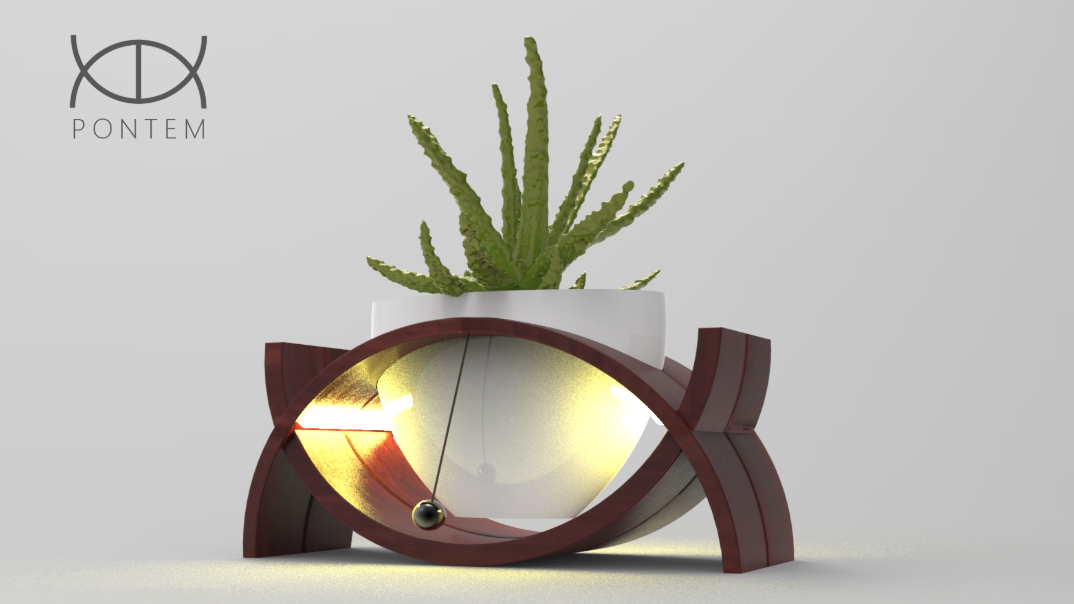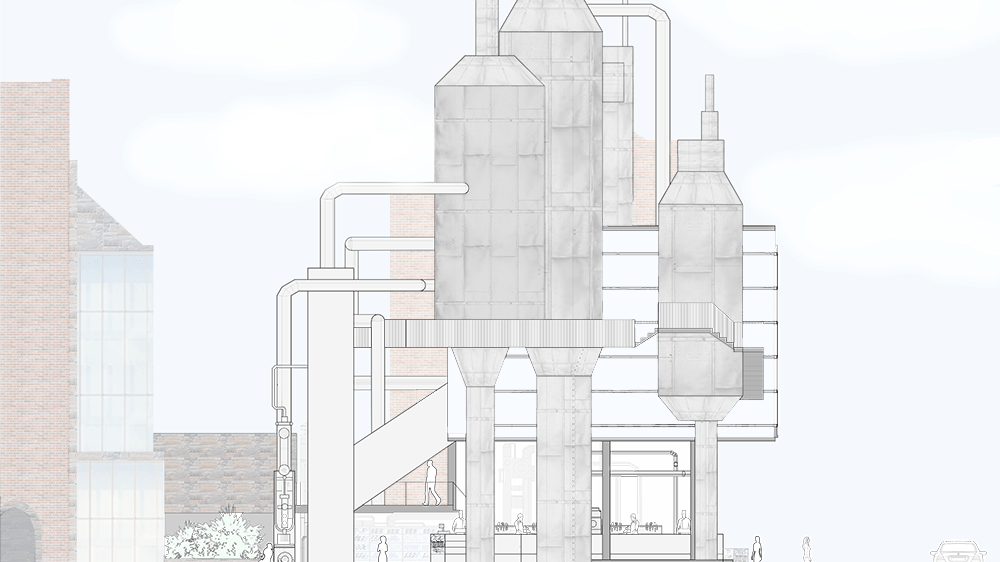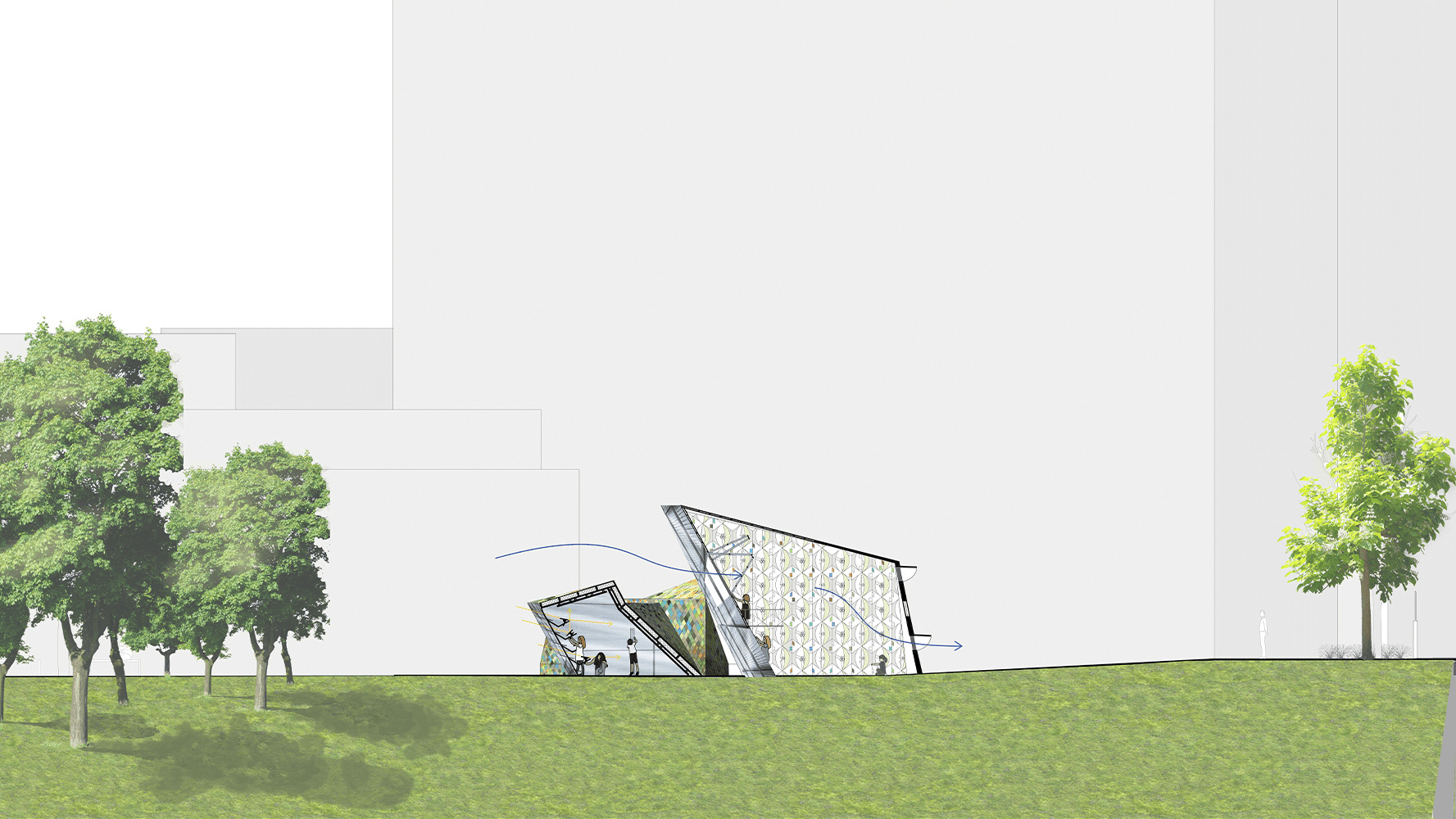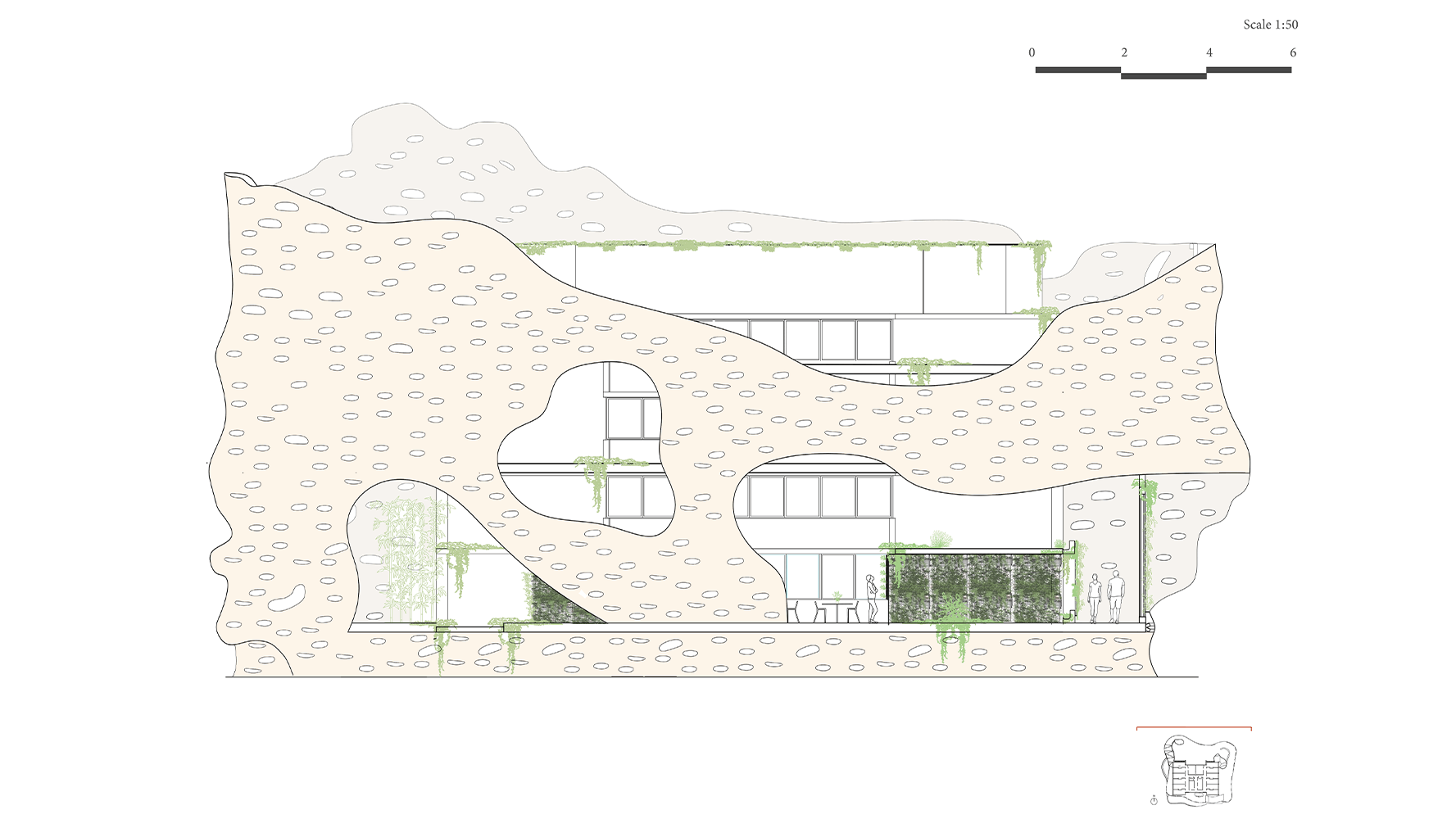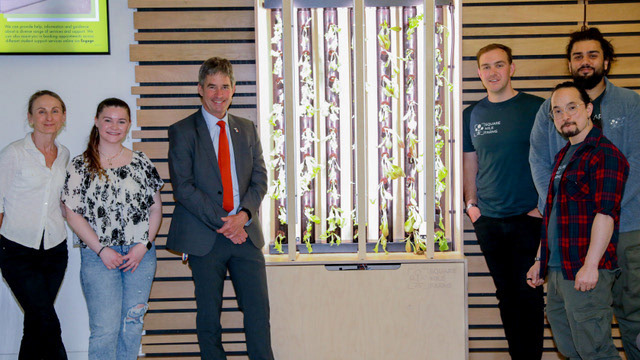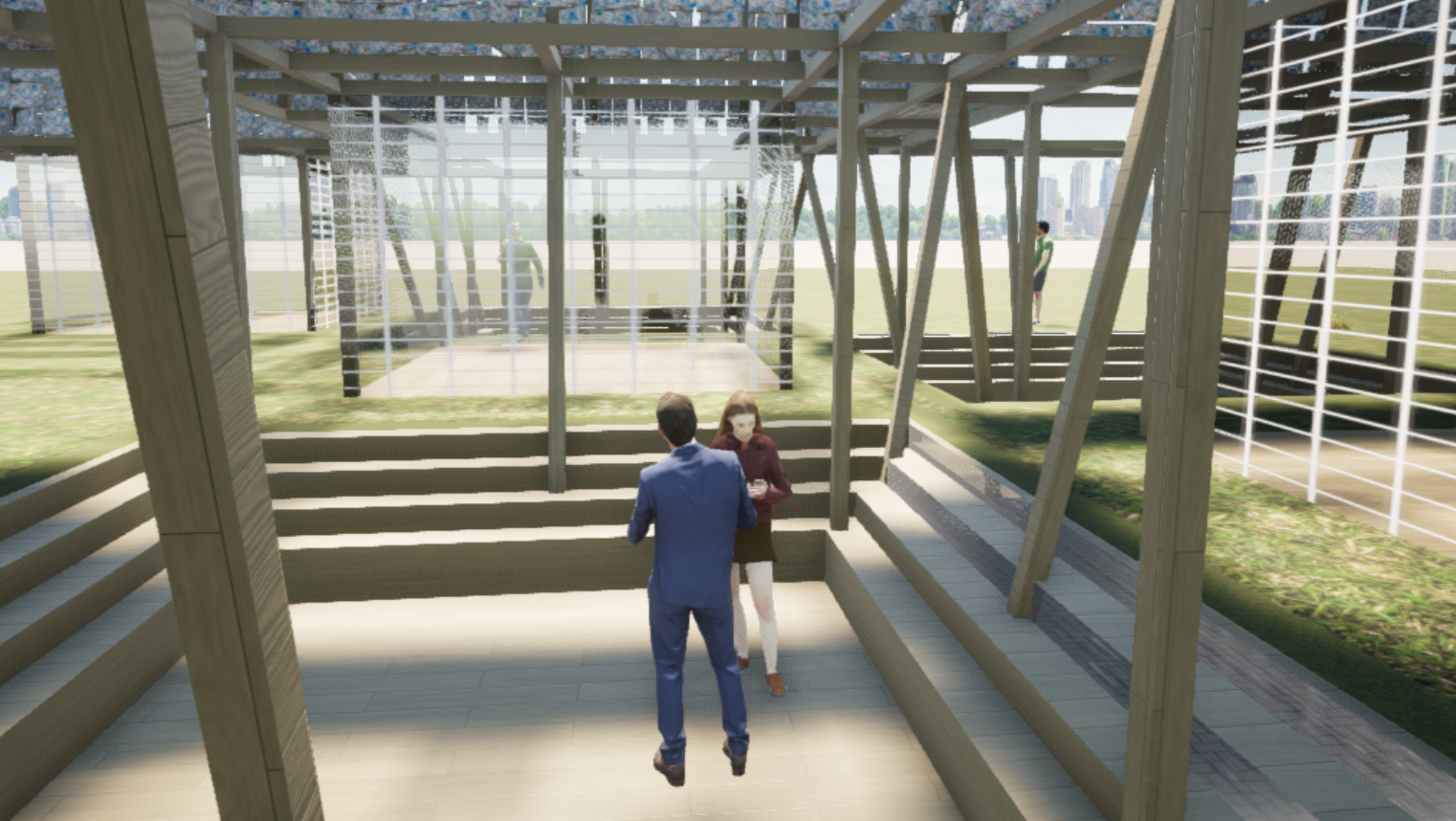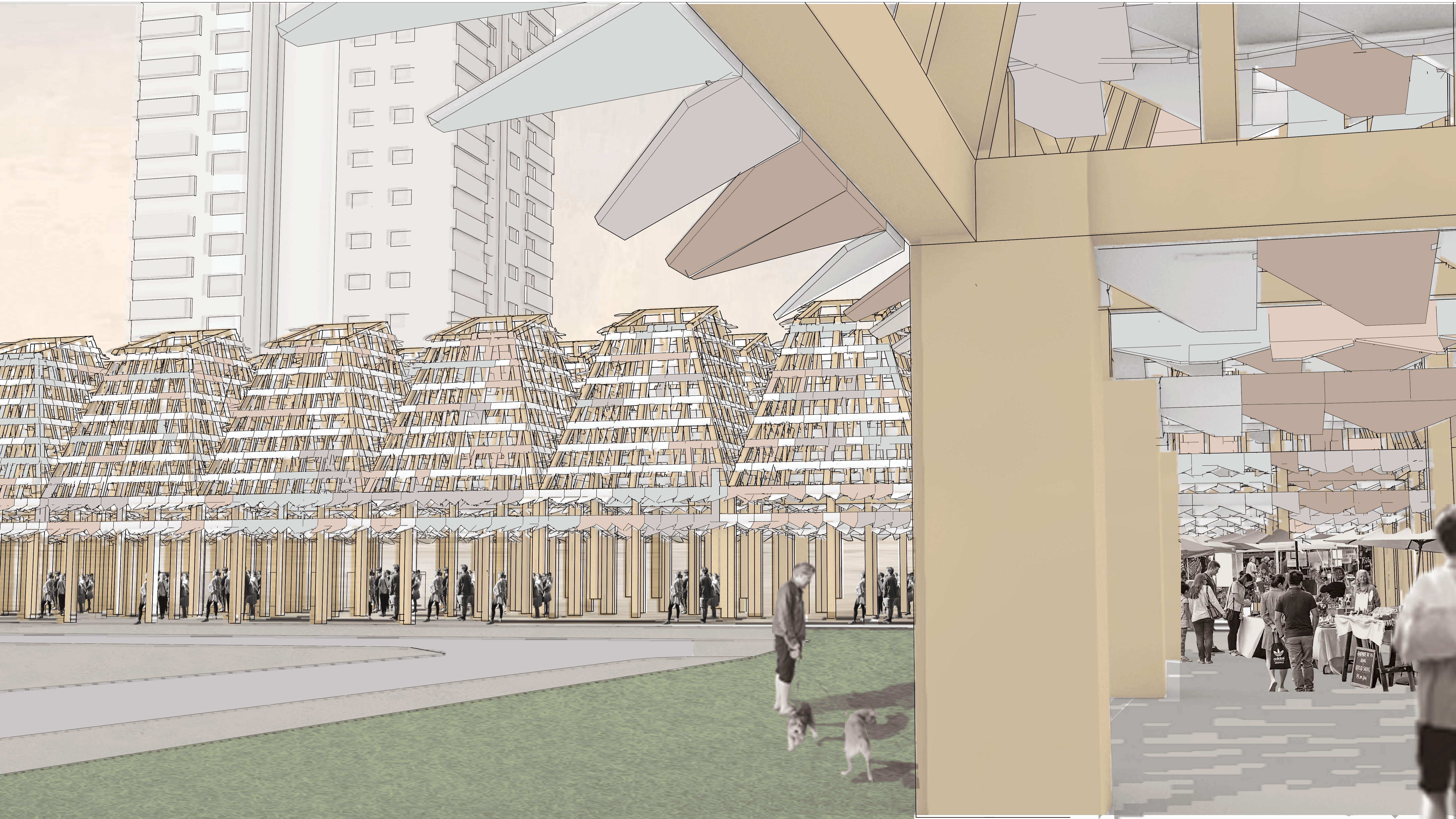A Responsive Green Wall to California's Climate
Rensselaer Polytechnic Institute: Building Science Studio Project
Day 7 of final prototype vegetation growing experiment.

First day: seed application

Growing period: 7 days
Below are the final project posters of the research project that looked into hydroponics and vertical farming application for improve building performance and human experiences. The project focused on a modular green wall unit, designed specifically for the climate and location of California. The tiles were made from ceramics and designed to optimize the solar angles for growing purposes, while also shading during the summer and providing sunlight during the winter. It also responds to the local wind patterns of the area by mitigating strong, prevailing winds but also providing cooling mechanisms when necessary for the hot summer months.
The project used chia seeds and radish seeds that latched on to the porous ceramic unit. Each tile was filled with water and allowed the seeds to use the water inside to grow into sprouts. This was meant to help with cooling mechanisms, shading, and also a potential use for restaurant food production. Other surfaces of the tile were painted with a cool, light color to allow for less solar absorption and an enjoyable visual experience.
The wall was designed to connect to an outdoor seating space for a restaurant and had different functions for sun, wind, and rain, and was responsive to both summer and winter conditions.

